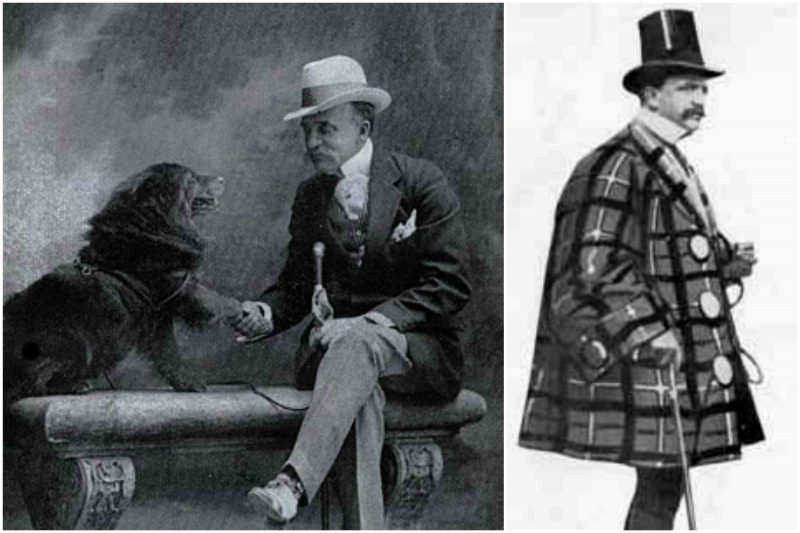Once upon a time, in the western world, there was a dude who was not just an ordinary dude, he was “The Dude”. No, his last name was not Lebowski, and he was not a Neo-Hippie bowler in a robe holding a White Russian.
You see, this dude wore a top hat, owned over 5,000 pairs of trousers and 5,000 neckties, and at age 22 he was worth $2 million.
He was crowned “King of the Dudes” in the 1880s.
This is the story of his “dudeness” Evander Berry Wall, the real dude of the Gilded Age.
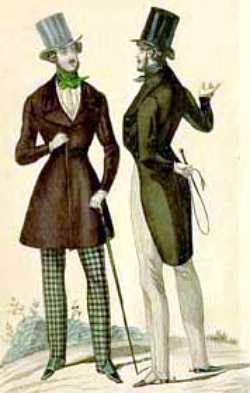
Before the 1800s, the term “dandy” was widely used to describe men who were unduly dedicated to their physical appearance, used refined language, and indulged in leisurely hobbies.
By 1880s, “dandy” had been replaced with a new word “dude”, which possibly derived from the Scotish word for clothes, “duddies.”
Around the 1880s and 1890s, “dude” was commonly used in the popular press to refer to a “socialite” and extremely well-dressed male and who was part of the café society.
These men were also nicknamed the “Bright Young Things” in the press. There was even a phrase colloquially used in American slang – “all duded up”, which meant getting dressed in fancy attire.
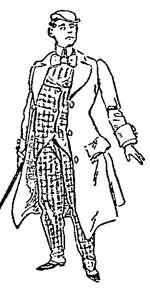
Evander Berry Wall, raised as a wealthy New Yorker and having inherited millions in his early twenties, became the leader of the American Café Society.
Wall was quite the dude indeed, he often wore a “very extraordinary costume”, drank champagne more than water, and was known to change his outfit six times a day.
There was even a time he was challenged by his financier friend, John “Bet a Million” Gates, to change clothes 40 times between breakfast and dinner, and change 40 times he did! He appeared on the race track “in one flashy ensemble after the other until, exhausted but victorious he, at last, entered the ballroom of the United States Hotel in faultless evening attire.”
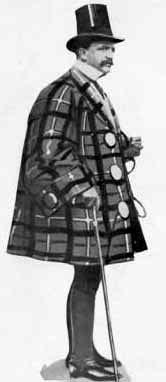
A man like this deserved a royal title, so in the summer of 1883, at the resort town of Long Branch in New Jersey, Evander Berry Wall was proclaimed “King of the Dudes.”
However, in 1888, there was another exceptionally well dress dude who dared to question the title of “The King.” Robert “Bob” Hilliard was an American stage actor, very popular at the time.
Going by the nickname “Handsome Bob”, he was as a very fine sartorial dude with a panache for creative dress. So, there was only one way to find out who was the finest of them all; “The Battle of Dudes” was scheduled.
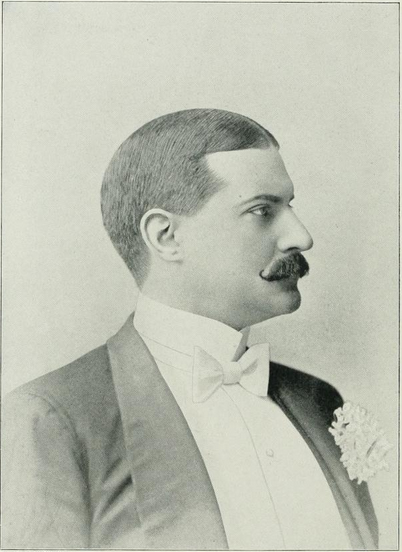
Even though Evander Berry Wall was widely proclaimed as the official winner of the so- called Battle of the Dudes and was again declared to be The King the New York American newspaper, there are still some records that suggest Hillard won the battle.
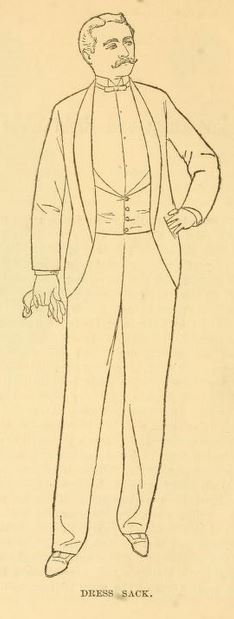
Wall was credited as being the first American to wear a dinner jacket (tuxedo) to a ball, in the time when tailcoat was a dress code for occasions of this sort.
The white ensemble had been sent to him by the London tailor Henry Poole & Co “to be worn for a quiet dinner at home or at an evening’s entertainment at a summer resort.”
Here is how one of the Dude’s outfits were reviewed in a New York Times, from 1902:
“It is a large gray shepherd plaid check, reminding one of the old-fashioned Paisley shawl. The trousers were extremely wide but tapered at the ankle.
They were turned up several inches to display white spats and highly varnished patent leather boots. But the crowning glory of the get-up was a dust coat of reddish Havana brown, an extraordinary shade for suiting. A colored shirt, all-around collar, bright red carnation-hued tie, the red shading into purple. The smallest of low-crowned “dinky” brown derby hats completed the outfit.”
Naturally, the flamboyant lifestyle that the King was leading cost him quite a large amount of money, so his financial situation was not quite as good as his fashion one.
After an ill-conceived stockbroking career and failures as a stable owner, Evander Berry Wall declared a bankruptcy in 1899.
Rather than wallowing in despair and acknowledging his financial defeat, the King declared that “New York had become fit only for businessmen” and in 1912 left for Paris to meet more “le dudes.”
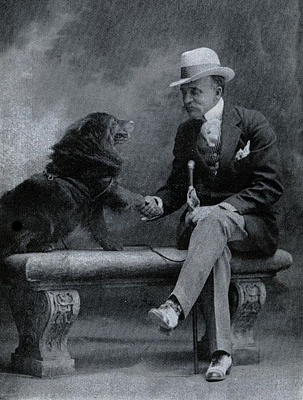
Being in the “The Belle Epoque” France was a perfect fit for Wall and his wife, who quickly became a respected members of the European social elite with friends like the Duchess of Windsor.
The Grand Duke Dimitri of Russia, the Aga Khan, and ex-king Nicholas of Montenegro (whom Wall called a “magnificent old darling”).
The king led a good life in Paris, living in the Hotel Meurice, dining exclusively at the Ritz with his dogs Chi and Toi Toi.
The horrors of WWI didn’t affect the dude much as he pulled every connection that he had and stayed in France, organizing fundraisers on behalf of wounded servicemen.
In his late seventies, Wall wrote his memoirs where he ascribed his longevity to the fact he never saw physicians and always drank champagne instead of water, claiming that:
“There are more old drunkards than there are old doctors” and noted that, “I keep reminding myself as I draw nearer my last great duty, the obligation upon me to thank the God I believe in for the gift of life.”
The King of dudes passed away in 1940 with only $12,608 left in his bank account, having squandered nearly every cent on pleasure.
